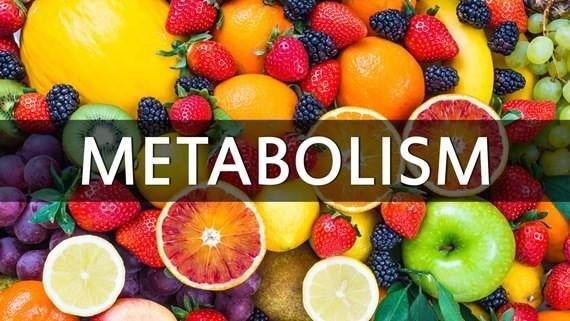Now Reading: How to Boost Metabolism Naturally
-
01
How to Boost Metabolism Naturally

How to Boost Metabolism Naturally
It is fundamental to possess a healthy metabolism central to energy, ideal weight control, and general well-being. The working of metabolism, the way your body turns food into energy, can be determined by several things. Though you can owe some of these changes to heredity, dieting, and other factors, they are useful, natural ways to boost your metabolism. Now, if you’re finding yourself trying to establish a lifestyle/long-term approach to a healthier and better metabolism, the idea of learning to be more mindful may be something that can serve you for the long haul.
Understanding the Role of Nutrition in Metabolism
This means that the type of foods you consume and the quantity and frequency are very important determinants of metabolic efficiency. The process of how, when, and what we consume determines the body’s capacity to deal with calories and energy. The best examples of such meals include lean protein foods, whole grain products, and vegetables, all of which, if consumed, help the body to work harder when digesting food. Of all these, protein is most beneficial due to what has been attributed to thermogenesis. It also means that compared to carbohydrates or fats, your body will require more energy to digest protein; therefore, it is a perfect commodity to boost metabolism.
Meals should also be balanced; too much or too little of something may cause problems. When the body is well-fed with balanced, healthy foods at regular intervals, it eliminates those energy dips where calorie burning is slowed. Also, excluding refined sugars and processed foods minimizes the chances of spiking insulin, halting your metabolic process. Metabolic-boosting foods include green tea, compounds facilitating fat metabolism, or small dark chocolates rich in flavonoids.
The Impact of Regular Physical Activity
Physical activity remains one of the most thorough approaches to increasing metabolism. Exercise enhances metabolism, making it easier for the body to burn calories or fats. Adding aerobic exercises such as jogging, swimming, and strength exercises into your training process has potential benefits. Aerobic exercises increase heart rate and are good for the heart, while strength training builds body muscles.

Muscle tissue is more metabolically active and burns more calories at rest than an equivalent fat tissue. This is why strength training benefits getting and keeping a high resting metabolic rate. Long-term changes can be achieved when you follow your interests, for instance, cycling, dancing, or gardening. Any movement, regardless of form, ensures that metabolism does not dull down all day.
Staying Hydrated for Metabolic Efficiency
When thinking about metabolism, the right ratio of water and the necessary vitamins and minerals is often overlooked. Water is needed in all organs and tissues of the body, and its chemical role is firsthand and important for metabolism. Published data show that ingesting water leads to a temporary reduction in resting metabolic rate. Research has shown that even a 2 percent loss in your body’s water reserves can decrease metabolism and the rate at which you burn calories.
One trick is to drink a glass of water first thing in the morning; this gets you off on the right foot. Drinking water before meals can also control hunger and improve digestion of the food to be taken. Herbal teas and water-containing foods such as cucumber and watermelon are other ways to replenish body fluids during the day. Eschewing soda pop and coffee keeps you quenched without gulping down added calories or the midday crash.
Prioritizing Quality Sleep
Sleep is a basic component of metabolic health. When you lack sleep, you cannot effectively manage hormones that regulate the metabolic process. Lack of sleep also increases the hunger hormone ghrelin, while there is an overall reduction in the satiety hormone and bad cholesterol known as leptin. This imbalance is bad for appetite but can also throttle your metabolism over the long term.
The food type and timing must be consistent to help the metabolic processes operate most efficiently. The bedroom where you sleep should be dark, noise-free, and at a comfortable low temperature. Dimming lights before bedtime and avoiding bright screens such as tablets, phones, laptops, or TVs are advisable; instead, use calming tasks like reading a book or practicing meditation. Every function and metabolic activity will work optimally if the body receives the restorative sleep required.
Managing Stress for a Healthier Metabolism
Stress is another factor that often goes unnoticed while disorganizing metabolic welfare. Habitual stress leads to the production of cortisol, which can disrupt metabolism and promote abdominal fat storage. After a while, cortisol levels cause muscles to decrease in size and the body to store extra fat, cutting down on metabolism.
The effects can be avoided if stress management activities are included in daily practice. Yoga and many forms of meditation, including mindfulness and deep breathing, are proven to lower cortisol levels. Other recommended methods for curing stress include taking on hobbies, spending time outdoors, and staying in touch with family and friends. Reducing stress helps not only metabolism but also the overall health of people, both physically and psychologically.
The Benefits of Small Lifestyle Changes
Subtle alterations of your ways of life throughout the day can significantly affect your functionality or metabolism. Prepared meals are divided throughout the day into five to six servings to enhance energy balance rather than get easily dragged down, as large meals make one uncomfortable. Some spices, such as chili peppers or ginger, when included in meals, can help boost calorie burning, at least for a while.
Similarly, increasing your activity level daily, no matter how little, will also help increase your metabolic rate. Walking during a break between work, taking the stairs instead of an elevator, walking, and even talking on the telephone all count in the long run. Apart from exercise, these short activities are known as NEAT, which assist in burning even more calories than you wouldn’t during a normal workout.
Why Consistency Is Key
Regular exercise is always said to be the key to a healthy metabolism in the human body. Implementation of radical changes or following trends can only bring long-term outcomes that are short-lived. Instead, concentrate on practices that are achievable and sustainable. Balancing meals, drinking enough water, important exercises, and getting enough sleep enhance lasting metabolic health.
However, daily practice of these habits will positively impact their energy levels and health status. The beauty of natural methods is that though they take time, they will also give you the best results, as you have seen.
Famous last words
It will be easier for individuals to learn about the natural ways of increasing metabolic rates, which include eating a balanced diet, exercising, drinking water, getting enough rest, having less stress, and small lifestyle changes. It is a noble feature that these strategies not only improve metabolic functions and calendar expenditure in the human body but also boost the well-being of your body. Implementing these changes in your daily life will improve your metabolism and give you the value of strong energy and healthy conditions. Patience and perseverance are your keys to success in transforming your life and becoming healthier and more energetic.




















